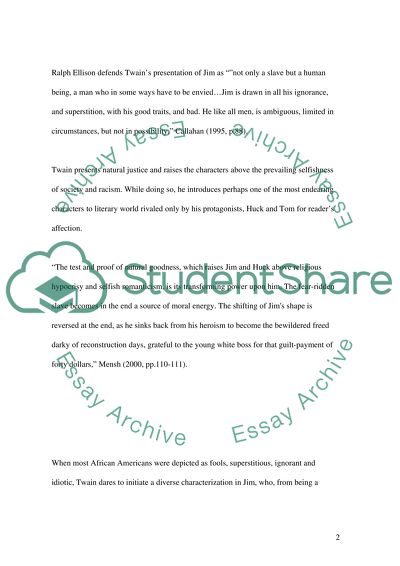Cite this document
(“The Role of Jim in Huckleberry Finn Essay Example | Topics and Well Written Essays - 1500 words”, n.d.)
The Role of Jim in Huckleberry Finn Essay Example | Topics and Well Written Essays - 1500 words. Retrieved from https://studentshare.org/miscellaneous/1530256-the-role-of-jim-in-huckleberry-finn
The Role of Jim in Huckleberry Finn Essay Example | Topics and Well Written Essays - 1500 words. Retrieved from https://studentshare.org/miscellaneous/1530256-the-role-of-jim-in-huckleberry-finn
(The Role of Jim in Huckleberry Finn Essay Example | Topics and Well Written Essays - 1500 Words)
The Role of Jim in Huckleberry Finn Essay Example | Topics and Well Written Essays - 1500 Words. https://studentshare.org/miscellaneous/1530256-the-role-of-jim-in-huckleberry-finn.
The Role of Jim in Huckleberry Finn Essay Example | Topics and Well Written Essays - 1500 Words. https://studentshare.org/miscellaneous/1530256-the-role-of-jim-in-huckleberry-finn.
“The Role of Jim in Huckleberry Finn Essay Example | Topics and Well Written Essays - 1500 Words”, n.d. https://studentshare.org/miscellaneous/1530256-the-role-of-jim-in-huckleberry-finn.


